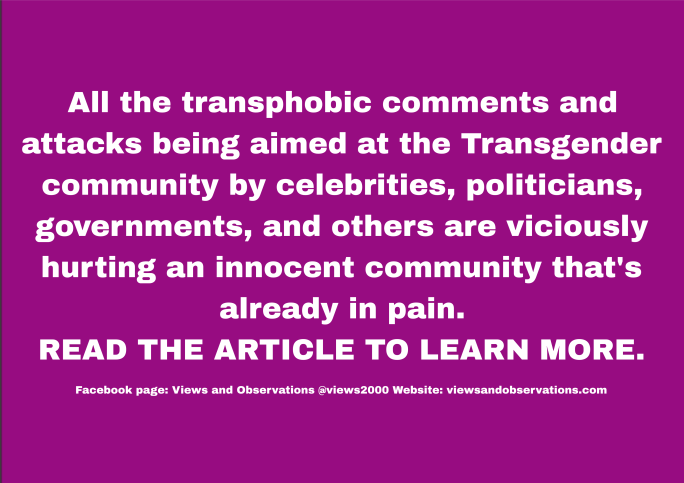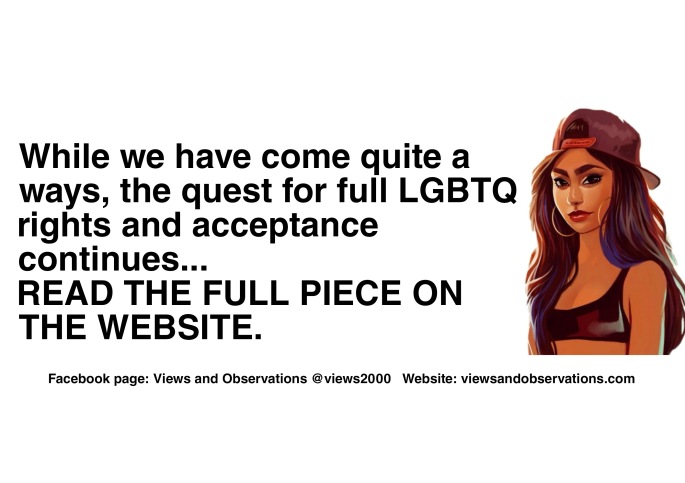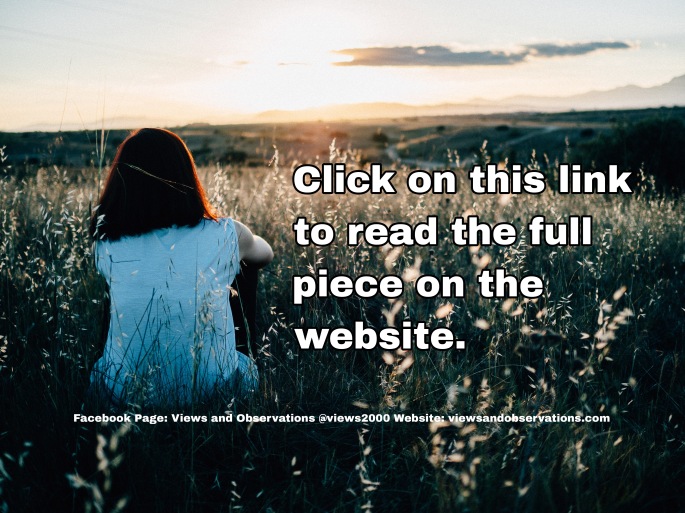Transphobia is too widespread and hurting far too many people. CLICK ON THE LINK TO READ THE FULL ARTICLE.
Tag: Genderfluid
The Fight for Full LGBTQ Rights and Acceptance Continues
In 2024, LGBTQ individuals still face significant challenges, including discrimination, violence, and lack of representation. Ways to support LGBTQ rights include speaking up, promoting accurate representation in media, supporting LGBTQ-friendly businesses, and voting for supportive officials. Progress has been made, but continued effort is needed for full acceptance and rights. CLICK ON THE LINK TO READ THE FULL ARTICLE.
Why Do Some People Find Romance While Others Don’t?
Some people find love and romance while others don’t, due to various factors like personality, interests, and outlooks. Connection can be hindered by differences or prejudice. Opening our minds to understanding and accepting others could lead to something beautiful or meaningful, fostering better connections and reducing unnecessary isolation and loneliness. CLICK ON THE LINK TO READ THE FULL ARTICLE.
Intolerance Can Come From Unexpected Places
For many LGBTQ people, intolerance can come from unexpected places, such as from both inside and outside the LGBTQ community. CLICK ON THE LINK TO READ THE WHOLE ARTICLE.
Still Too Many People Facing Intolerance And Lack Of Understanding
There is too much intolerance in the world which in turn hurts too many people. CLICK ON THE LINK TO READ THE FULL ARTICLE.
Too Many People Are Hurting Due To A Lack Of Acceptance From Much Of Society.
Too many members of the LGBTQ Community feel isolated and alone. This needs to change. CLICK ON THE LINK TO READ THE FULL ARTICLE.
Pride Is Here
Pride can be a difficult time for many LGBTQ people for a whole variety of reasons. CLICK ON THE LINK TO READ THE FULL ARTICLE.
Too Many People Get Hurt Because Of Being Seen As Too Different
People need to open their minds and broaden their horizons.
People Need To Educate Themselves And Open Their Minds
There is too much intolerance in society these days.
People Need To Open Their Minds About Transgender, Genderfluid, Genderqueer, Non-binary Individuals
People need to educate themselves and open their minds










